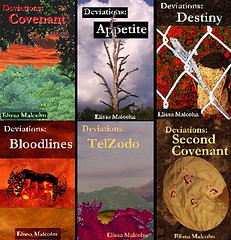NaNo Update: Change in Strategy
The idea behind National Novel Writing Month is to write at breakneck speed. That idea is based on the assumption that writers have done their version of advance preparation, whether that means constructing a novel outline, scribbling notes, and/or doing whatever research they think is required (and inserting placeholders during NaNo when they realize they need to do more research).
For a nonfiction "rebel" like me, the Web is invaluable to my project.
For someone like me, who is following and chronicling the #SciFund Challenge, an event occurring parallel to NaNo in realtime, the Web is my project.
And when my Internet connection sloooooooows dooooooown, I get cranky.
I've done the usual fixes. Reboot. Cold start. Turning the router off and then back on. Lather, rinse, repeat.
I've had three days of that now.
Normally I've been grabbing URLs and catching up with them when I can. (See, for example, this entry.) That doesn't work too well these days, especially after around 5:30 p.m. That's when I notice my connection slowing down. I've started writing this entry at around 5:45: my way of multi-tasking while I wait for a page to load.
By the time midnight rolls around, that wait -- which has grown over the preceding hours -- can be agonizing. Eventually I have to just give up and get some sleep.
So I've shifted gears. I perform my own freelance work on flex-time, which I love, and which allows me to do things like spend "normal" working hours -- when my connection functions at a nice clip -- gathering my data. And this time, I'm not stopping at URLs.
I'm cutting and pasting text and saving pages as .pdf and .txt files. With a vengeance.
Right now I've got one file open where I'm revisiting previously-saved URLs and fleshing out their info. I've got another file open where I'm grabbing and annotating new info that pops up -- for as long as it's poppin' and not stallin'.
Today's news includes the latest coverage of the #SciFund Challenge in Scientific American -- specifically, Rose Eveleth's article "To Study Backward-Finned Dolphin, Researcher Sources Crowds for Cash: One researcher's quest to understand some funky fins taps a new crowdsourcing model to funding his project". Researcher Matt Leslie (take a look at his project here!) is studying an evolutionary oddity: the dorsal fin in a specific type of dolphin faces "backward." He wants to know why.
If you're interested in aeronautics and studies of drag, you'll find his work intriguing. Leslie's video also includes a shot of an X-29 experimental fighter plane, whose wings look -- backward. If you think of dolphins as flying rather than swimming through the water, that odd fin starts to make sense. So do some weird flukes that aren't -- well, flukes.
But eyeballing and hypothesizing aren't enough. Leslie needs to do some drag studies, using a flow tank as a kind of watery wind tunnel. And for that, he needs some funds.
That's just one of today's items, taken in isolation. But I'm also interested in the interplay of what happens across the #SciFund spectrum simultaneously.
November 11 is a great example of that spectrum. Not only was Kristina Killgrove's Roman DNA study (which became fully funded that day) covered by Ed Yong in CNN and by Alex Knapp in Forbes (along with getting other coverage), but #SciFund itself got a boost from Kevin Zelnio, writing in Scientific American. That same day, the Minnesota Daily News, "The independent news source of the University of Minnesota area," covered the #SciFund project "Serengeti Live."
That same day, #SciFund participant Daniel Mietchen blogged about what needs to be fixed in science funding. Discussion on the web revived Mark Changizi's August 2010 article on biases against certain types of grant proposals. And #SciFund participant Shermin deSilva's guest post at the #SciFund blog relayed her candid observations and concerns about science crowdfunding.
Meanwhile, "Dr. Zen" Faulkes was interviewed on Episode 6 of "The Weekly Weinersmith" about his study of "Amazon crayfish." Amazon as in female clones. Crayfish as in invasive. Talk about your real-life "clone wars" (or listen to him talk about them!) -- along with zombie shrimp and some really cool evolutionary questions.
In the middle of all that excitement, crocodilian researcher Marisa Tellez discovered a new parasite species. She's studying the relationship -- millions of years in the making -- between the American alligator and its parasites. That bond may have given the alligator its formidable immune system, and might now be affected by environmental changes.
That discovery was also tweeted on November 11 -- the day after Tellez had gotten a boost from her alma mater. Which alma mater? Her high school. The place that displays her jersey in its auditorium.
(You can also learn more about Marisa Tellez -- a.k.a. "The Latina Crocodile Hunter" -- in today's edition of Hispanically Speaking News.)
My slow connection yesterday fairly sent my word count crashing through the floor, and I've spent the better part of today gathering material that I can access from my hard drive. And I've backed it all up onto my flash drive. You'd better believe I'm ready to write.
Because when I get cranky, I go for the gusto.
Update, Nov. 18: My modem has now been replaced. So far, so good!
Elissa Malcohn's Deviations and Other Journeys Promote Your Page Too 
Vol. 1, Deviations: Covenant (2nd Ed.), Vol. 2, Deviations: Appetite, Vol. 3, Deviations: Destiny, Vol. 4, Deviations: Bloodlines, Vol. 5, Deviations: TelZodo, Vol. 6 and conclusion: Deviations: Second Covenant. Free downloads at the Deviations website (click here for alternate link), Smashwords, and Manybooks. 
Proud participant, Operation E-Book Drop (provides free e-books to personnel serving overseas. Logo from the imagination and graphic artistry of K.A. M'Lady & P.M. Dittman); Books For Soldiers (ships books and more to deployed military members of the U.S. armed forces); and Shadow Forest Authors (a fellowship of authors and supporters for charity, with a focus on literacy). 
This work is licensed under a Creative Commons Attribution-NonCommercial-ShareAlike 2.5 License.
For a nonfiction "rebel" like me, the Web is invaluable to my project.
For someone like me, who is following and chronicling the #SciFund Challenge, an event occurring parallel to NaNo in realtime, the Web is my project.
And when my Internet connection sloooooooows dooooooown, I get cranky.
I've done the usual fixes. Reboot. Cold start. Turning the router off and then back on. Lather, rinse, repeat.
I've had three days of that now.
Normally I've been grabbing URLs and catching up with them when I can. (See, for example, this entry.) That doesn't work too well these days, especially after around 5:30 p.m. That's when I notice my connection slowing down. I've started writing this entry at around 5:45: my way of multi-tasking while I wait for a page to load.
By the time midnight rolls around, that wait -- which has grown over the preceding hours -- can be agonizing. Eventually I have to just give up and get some sleep.
So I've shifted gears. I perform my own freelance work on flex-time, which I love, and which allows me to do things like spend "normal" working hours -- when my connection functions at a nice clip -- gathering my data. And this time, I'm not stopping at URLs.
I'm cutting and pasting text and saving pages as .pdf and .txt files. With a vengeance.
Right now I've got one file open where I'm revisiting previously-saved URLs and fleshing out their info. I've got another file open where I'm grabbing and annotating new info that pops up -- for as long as it's poppin' and not stallin'.
Today's news includes the latest coverage of the #SciFund Challenge in Scientific American -- specifically, Rose Eveleth's article "To Study Backward-Finned Dolphin, Researcher Sources Crowds for Cash: One researcher's quest to understand some funky fins taps a new crowdsourcing model to funding his project". Researcher Matt Leslie (take a look at his project here!) is studying an evolutionary oddity: the dorsal fin in a specific type of dolphin faces "backward." He wants to know why.
If you're interested in aeronautics and studies of drag, you'll find his work intriguing. Leslie's video also includes a shot of an X-29 experimental fighter plane, whose wings look -- backward. If you think of dolphins as flying rather than swimming through the water, that odd fin starts to make sense. So do some weird flukes that aren't -- well, flukes.
But eyeballing and hypothesizing aren't enough. Leslie needs to do some drag studies, using a flow tank as a kind of watery wind tunnel. And for that, he needs some funds.
That's just one of today's items, taken in isolation. But I'm also interested in the interplay of what happens across the #SciFund spectrum simultaneously.
November 11 is a great example of that spectrum. Not only was Kristina Killgrove's Roman DNA study (which became fully funded that day) covered by Ed Yong in CNN and by Alex Knapp in Forbes (along with getting other coverage), but #SciFund itself got a boost from Kevin Zelnio, writing in Scientific American. That same day, the Minnesota Daily News, "The independent news source of the University of Minnesota area," covered the #SciFund project "Serengeti Live."
That same day, #SciFund participant Daniel Mietchen blogged about what needs to be fixed in science funding. Discussion on the web revived Mark Changizi's August 2010 article on biases against certain types of grant proposals. And #SciFund participant Shermin deSilva's guest post at the #SciFund blog relayed her candid observations and concerns about science crowdfunding.
Meanwhile, "Dr. Zen" Faulkes was interviewed on Episode 6 of "The Weekly Weinersmith" about his study of "Amazon crayfish." Amazon as in female clones. Crayfish as in invasive. Talk about your real-life "clone wars" (or listen to him talk about them!) -- along with zombie shrimp and some really cool evolutionary questions.
In the middle of all that excitement, crocodilian researcher Marisa Tellez discovered a new parasite species. She's studying the relationship -- millions of years in the making -- between the American alligator and its parasites. That bond may have given the alligator its formidable immune system, and might now be affected by environmental changes.
That discovery was also tweeted on November 11 -- the day after Tellez had gotten a boost from her alma mater. Which alma mater? Her high school. The place that displays her jersey in its auditorium.
(You can also learn more about Marisa Tellez -- a.k.a. "The Latina Crocodile Hunter" -- in today's edition of Hispanically Speaking News.)
My slow connection yesterday fairly sent my word count crashing through the floor, and I've spent the better part of today gathering material that I can access from my hard drive. And I've backed it all up onto my flash drive. You'd better believe I'm ready to write.
Because when I get cranky, I go for the gusto.
Update, Nov. 18: My modem has now been replaced. So far, so good!












0 Comments:
Post a Comment
<< Home